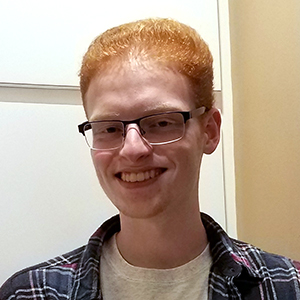Core Honors Courses
These year-long courses provide a common groundwork for our intellectual community, cultivating a shared sense of collaboration, debate, and inquiry that extends beyond the classroom walls.
Central to an Adelphi Honors College education are two core curriculum courses: The Modern Condition and The Human Condition. In these classes, our students learn to employ the methodologies and critical approaches central to a well-rounded liberal arts education. At the same time, they also develop as articulate speakers, effective writers, and sympathetic listeners.
These classes tackle big historical questions such as:
- the rise of democracy and capitalism
- the effects of industrialization and modern technology
- the meaning and impact of modernism and post-modernism
- the debates surrounding civil rights and social inequality
- the value of epic poetry and the rise of the novel
- the relationship of the individual to a community
We push our students to ask—and answer—informed questions about the ethical, political, cultural and epistemological claims inherent in the texts we read. We also demand that students develop their own historically-informed perspectives on the present world. Taken together, these courses introduce the history of disciplinary knowledge, as well as the necessity of innovative interdisciplinary work in the university, in the professional world, and in our lives, both as human beings and citizens.
I really enjoy the course selection in the Honors College, and in particular Modern Condition. The discussion-style courses promote conversations that are relevant to daily life and make you consider the significance of what you’re learning.
 Casey Baron ’22
Mathematics Major
Casey Baron ’22
Mathematics Major
The Modern Condition Course
The Modern Condition I and II is a sequence of courses that introduces all first-year students in the Honors College at Adelphi to the main features and challenges associated with “modernity.” The syllabus includes scientific, philosophical, political, and literary texts that date from the sixteenth century to the present, and which represent a wide range of intellectual traditions from across the globe. Readings include the works of authors as varied as Charles Darwin, Virginia Woolf, Jorge Luis Borges, Ngugi wa Thiong’o, Aphra Behn, Lu Xun, Mahatma Gandhi, and Robin Wall Kimmerer. Among the topics that students examine in the course are changing conceptions of human nature; the tensions between tradition and change in developing societies; the social construction of race, gender, and national identities; the role of art in society; and the challenges that contemporary phenomena, such as the climate crisis, pose to our narratives of “progress.” As a complement to work in a major, this interdisciplinary seminar enables our students to situate their academic work in a broad historical and intellectual context.
Multidisciplinary Thinking Lecture Series
Discover how great ideas transform across disciplines. Adelphi faculty outline a “mini-history of ideas” highlighting how specific texts have impacted their research and defined their academic fields. These engaging discussions expand on themes and ideas investigated in the Modern Condition course while opening new intellectual horizons. Recent discussions have explored:
Kelly Swartz of the English department delivered lectures titled “Maxims and the Mind: Scientific Not-Knowing in 18th-Century Novels.”
Michal Oelze of the history department delivered lectures titled “Brazil’s Modern Condition(ing): Musical Psychology & the Origins of Emotional Engineering.”
Professor Maya Muratov of the Department of Art and Art History delivered lectures titled “Getting Lost in Translation: Archaeologists, Travelers, Dragomans in the 19th-early & 20th-century Egypt.”
Maggie Gray of the political science department delivered lectures titled “Power & Perception: New York Farmworker Rights.”
Professor Christopher Davis of the African, Black, and Caribbean studies department delivered lectures titled “Eugenics and Colonization.”
Professor Hannah Kim of the anthropology department gave lectures on her research focusing on the transnational Hindu community. Professor Kim is an ethnographer who engages with the scholarship of historians, philosophers, anthropologists, political scientists, and religious studies scholars.
Professor Jacqueline Olvera of the sociology department addressed texts central to her research on “how the label “illegal” devalues the quality of a person, attaches itself to a body, and contaminates entire groups,” with “a focus on the experience of Mexicans.”
Professor Kirsten Ziomek of the history department addressed texts contributing to her research on “the experiences of the colonial soldiers and forced laborers who fought for or were coerced into helping the Japanese military during World War II.“
The Human Condition Course
The Human Condition is a great-books course engaging classics of world literature. Our students employ the interdisciplinary skills and approaches developed in Modern Condition to consider how different literary works contribute to our understanding of history, culture, empire, religion and the self and social world. While the first semester typically focuses on epic poetry such as the Odyssey, Aeneid, Shahnameh: The Persian Book of Kings, and The Tale of Heike, the second semester addresses other literary genres—such as theater, lyric, and the novel—and how they continue to be meaningful for people throughout time. As a complement to work in the major, this literary focus allows students to dive deep into the study of a discipline, learning in the process how to think intricately about a single subject. Our students develop insights into the necessarily interdisciplinary nature of literary studies, focusing on how literature addresses political, historical, religious, as well as aesthetic considerations.